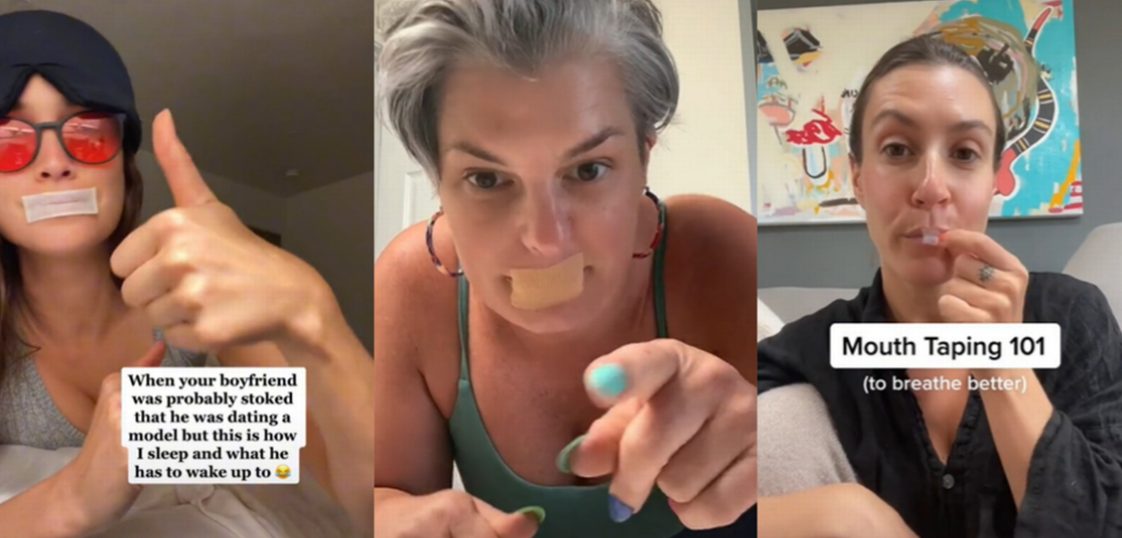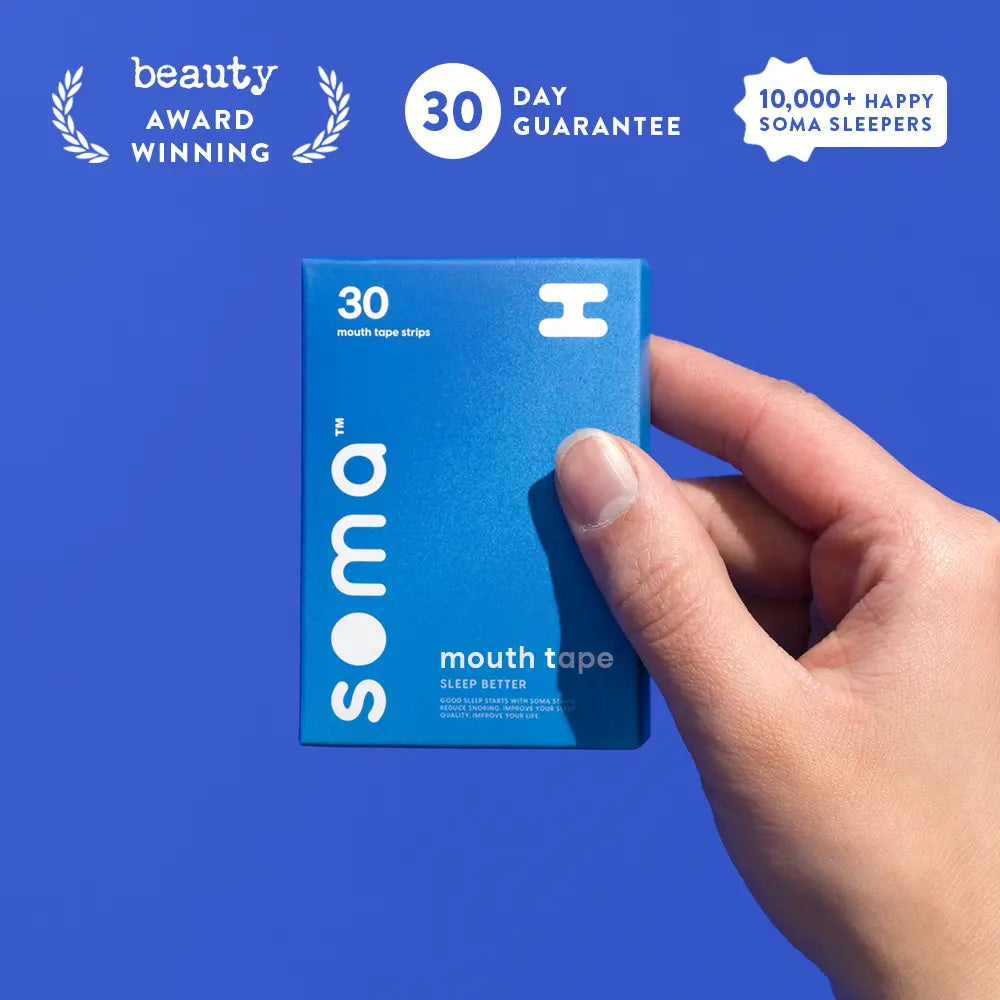

Does Mouth Tape Work? According to Health Experts
What is Mouth-Taping and Why Does it Matter?
Mouth taping, although gaining traction in recent years, is not a new concept. It has been used in the medical and dental communities for decades as a way to promote nasal breathing and help improve sleep. It is also commonly used in the sports world as a way to improve performance by increasing oxygen uptake and reducing fatigue. In addition to the sleep and athletic benefits, mouth taping has been linked to a number of other potential health benefits.
A study published in the Journal of Clinical Sleep Medicine found that mouth taping can improve symptoms of snoring and obstructive sleep apnea, a condition where breathing is interrupted during sleep. Another study, published in the Journal of Allergy and Clinical Immunology, found that mouth taping can help reduce symptoms of allergic rhinitis, a chronic condition that causes inflammation of the nasal passages.
Hear From the Experts
While there is promising research, experts caution that mouth taping may not be for everyone. Dr. Michael J. Wei, a cosmetic dentist with a practice at Manhattan New York City Cosmetic Dentist recommends consulting with a medical professional before trying it, particularly for those with preexisting breathing or sleep disorders. However about mouth tape he says, "Breathing through the nose helps filter, humidify and warm the air before it enters the lungs, which can help improve overall respiratory health. Nasal breathing also promotes better oxygen uptake and can reduce the risk of snoring and sleep disturbances."Additionally, if you experience nasal congestion or have a cold or allergy flare-up, it may not be the best time to try mouth taping.
It has been used for decades in the medical and dental world and has gained popularity in the athletic community as well. While there is promising research, it may not be suitable for everyone and consulting with a medical professional is recommended.
While the image of using a strip of duct tape over the mouth may come to mind, it is important to use specialized mouth tape that is specifically designed for this purpose, taking into consideration comfort and safety. This method comes in various formats, from skin-safe silicone tape to bandages.
On the other hand, Dr. Erin Fraundorf, an orthodontist and founder of Boca Orthodontic and Whitening Studio in St. Louis, Missouri, highlights the downsides of mouth breathing. "Sleeping with an open mouth and breathing through it can lead to feeling fatigued upon waking up, along with a dry mouth. This can also contribute to issues such as bad breath, cavities, hoarse voice, and dry lips."
But What are the Benefits of Mouth-Taping?
-
Enhanced nasal breathing. One of the primary advantages of mouth taping is the promotion of breathing through the nose. This can lead to a multitude of other benefits according to experts. For instance, Fraundorf explains that nasal breathing stimulates the production of nitric oxide, a gas that can boost blood flow, lower blood pressure, and improve brain function.
-
Improved oxygen intake. By encouraging nasal breathing, mouth taping can activate the lower lungs, allowing for deeper and fuller breaths. This results in a higher intake of oxygen, as compared to breathing through the mouth. Wei also notes that nasal breathing can improve air filtration and carbon dioxide elimination, making it a more efficient breathing method.
-
Reduced snoring. Wei and Fraundorf both suggest that breathing through the nose can reduce or eliminate snoring, leading to a more restful sleep for both the user and their sleeping partner.
-
Prevention of teeth grinding. Mouth taping can potentially prevent teeth grinding (bruxism) by promoting proper positioning of the mouth and jaw during sleep. However, it is important to note that individuals with temporomandibular joint (TMJ) disorders or jaw pain should avoid mouth taping, as it may aggravate their symptoms.
-
Better oral hygiene. According to Fraundorf, mouth taping can improve oral health by reducing mouth dryness, cavities, and the risk of gum disease. - Fresher breath. Experts also link mouth breathing to bad breath and tooth decay, as it can allow harmful bacteria and viruses to enter the body. Nasal breathing promoted by mouth taping can help prevent these issues and promote fresher breath.
-
Enhanced sleep and energy levels. With its potential to improve sleep quality, mouth taping may result in other related benefits, such as increased REM sleep, higher energy levels in the morning, improved cognitive function, and reduced anxiety.
Latest News


